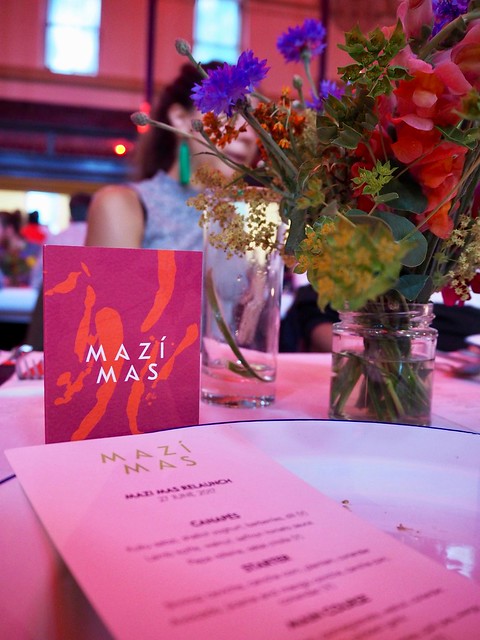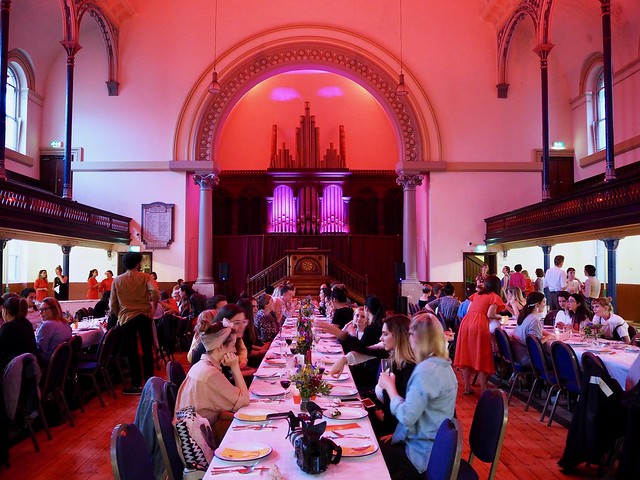Alexandra Kalinowski attends a Mazi Mas dinner and reflects on her own relationship with her Oma.
For those of you who know me, you’re familiar with the turbulent relationship I had with my Oma, my German grandmother. Growing up she meant the world to me; a world she handcrafted through play, cooking and a deep sense of love from an ocean away. It was her cooking that drew all of us time and again to the kitchen and table, and I’ve yet to be able to find a replication of her craft. It’s her meals, hospitality, and my now ingrained passion for food that have helped me overcome that time when her spitefulness towards our loved ones turned them weak. Those memories around the table have given me peace.
Being the matriarch of a family is difficult. It’s often a position of silent power pulled together through years of patience. My grandmother didn’t have the same liberties my mom is awarded and deserving of within her marriage, but my grandfather did allow her to own and run a delicatessen in a time when having a wife work was embarrassing. Couldn’t he bring home the bread and butter alone people would wonder… She was ‘lucky,’ as Niki Kopcke, the founder of Mazi Mas, would probably agree. And certainly an outlier, even for some women still to this day.
So what is Mazi Mas? It was born out of another grandmother granddaughter relationship. Niki grew up in New York close to her immigrant Greek grandmother who was a master in the kitchen. She would love to share her cuisine with family and friends but never had the opportunity to bring it to more people because her husband wouldn’t allow it. When Niki moved to London for her masters, she began volunteering in refugee centres and community cafes where she would relive the same story as her grandmother: women who were skilled cooks but lacked access to employment.

So in 2012 Niki gathered a few chefs together to begin opening the doors to employment and a greater sense of community in such a foreign place. Since then, Niki has worked with 15 women, one of whom has become the general manager empowering fellow migrants. From there, they recently launched a recruitment programme where five chefs and five service staff undergo 7 months of intensive training and part-time employment before the next group of trainees arrive in September. All women receive training on catering and moveable feasts to be able to go on and make viable livelihoods.
To celebrate the first graduating class, Mazi Mas held a dinner at the Round Chapel in Clapton. The room was lit in beautiful reds and purples, and women in bright red dresses floated across the room with plates full of hors d’oeuvres. The three-course meal was a blend of Ecuadorian, Iranian and Costa Rican cuisines as the graduate cooks are from those respective regions. You wouldn’t think large maize and Levanghe chicken could follow one another so beautifully, but each course was an extension of the individual chef’s stories that paired just perfectly. Each woman spoke about life back home and what culinary influences they’ve brought with them to London. Roses from the family garden in Iran and fresh cheese from Ecuador make for an exciting new and authentic experience rarely found in the UK. The food was lovely, and even more impressive was the amount of women in the kitchen, on the floor, and running the entire show.
I left flooded with happy memories of my Oma and excited about the initiatives this city is taking to empower women, specifically in the kitchen. There’s nothing like a sense of community and a genuine love for what you do, especially when you are so far from home.
Mazi Mas is available for catering and residencies before they settle on a permanent space within the next year or so. For more information go to www.mazimas.co.uk.






















